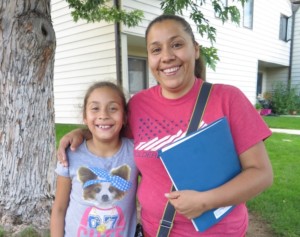Insight from the Great Learning Conversations: 8 Ways Parents Want to Connect With Schools
Key Points
-
These powerful conversations are part of a collaborative project called Parents as Allies.
-
Here’s what parents shared during the Great Learning Conversations in 10 western Pennsylvania communities.

By: Yu-Ling Cheng
The ideas come quickly during the Great Learning Conversations. Week after week, parents and educators arrive full of thoughts about why family-school engagement matters.
It’s as if they’ve been waiting for someone to ask the questions these evenings were designed to explore: What would you want schools to know about your child and your family in order to help your young learner succeed? How can schools really engage with parents?
And then the biggest question, one that most parents have never been asked before: What do you believe is the actual purpose of K-12 education in the 21st century?
These powerful conversations are part of a collaborative project called Parents as Allies, which combines the work of the Brookings Institution, HundrED, the Teachers Guild x School Retool team at IDEO and Kidsburgh.
These organizations came together to launch Parents as Allies in response to an unexpected outcome of the pandemic: Even as schools shut down worldwide, parents and schools began connecting more meaningfully than ever before.
In its recently issued Playbook for Family-School Engagement, Brookings noted that “this new focus on ways to connect families with schools presents an opportunity to markedly shift broader approaches, and the overall vision, for long-term collaboration.”
With Brookings’ Playbook data and the fruits of IDEO’s design sprint as the starting point, Kidsburgh began hosting Great Learning Conversations in 10 western Pennsylvania communities. Here’s what they found:
What Do Parents See as the Purpose of K-12 School?
Brookings posed this question and found four primary responses:
- To prepare students academically for post-secondary education.
- To prepare students with workforce skills and competencies.
- To prepare students to be good citizens ready to lead political and civic lives.
- To help students gain self-knowledge, find a sense of purpose and understand their values.
During the Great Learning Conversations, similar responses surfaced: The purpose of school, one parent said, is “to prepare students with workforce skills and competencies while gaining self-confidence, social and life skills that will help them through early stages of adulthood.”
Ideally, another said, school can “help students gain necessary skills to be productive members of society with a strong sense of purpose and self, empathy and understanding of their values in our ever-changing world.”
School should “teach kids how to be themselves and build self-confidence,” one parent said. “We need school to help kids “learn the basics of education, but also know how to be good, kind people.”
The purpose of school, one parent said, is “to prepare students with workforce skills and competencies while gaining self confidence, social and life skills that will help them through early stages of adulthood.”
Parents want to engage with schools — and they have creative, cost-free suggestions for making it happen. Among them:
- DIGITAL CONNECTIONS: What if teachers offered an optional individual phone or video call before the year begins to introduce themselves and ask about a child and their family? Parents say they want to share details about what the child finds interesting, how they like to learn and what their habits are like at home.
- SMALL-GROUP BONDING: What if schools hosted small-group gatherings where parents (with or without their kids) could connect with just a few teachers and a few other parents? These small, informal gatherings could involve some kind of communal project or simply be an hour spent sharing snacks and coffee.
- SOCIAL-EMOTIONAL LEARNING OPTIONS: What if schools shared with parents a menu of clubs and extracurricular opportunities that support various kinds of social-emotional learning? Parents tend to know which “soft skills” their children are interested in developing further — and which ones their children struggle to master.
- ORIENTATION FOR OLDER GRADES: Early elementary parents are usually given some introduction to the school system. But as kids get older, parents are offered fewer ways to learn about their child’s school experience or get involved. What if schools offered a sort of “orientation” for each grade, where teachers share details and welcome parents to ask questions.
- SHARED CELEBRATIONS: Parents would happily participate in various kinds of in-person recognition events, such as student awards for creative art or STEM projects, or awards honoring teachers and other staff who go above and beyond.
- TEACH US, TOO: What if each school offered a handful of workshops (in person or via video) to teach parents about the school’s learning management system and the learning apps their kids are using? Parents and teachers can bond over the fun and frustration of learning new tech — another opportunity to interact as individuals.
- ROLE-PLAY DAYS: What if schools gave parents a real “day in the life” experience of their child’s school day? Parents would likely gain empathy for the challenge of a teacher’s job, and they’d understand more fully what it’s like to spend seven concentrated hours learning each day.
- SHARE THE GOOD NEWS: Especially as students get older, parents say they generally hear from teachers only when something is wrong. They’d be glad to get positive notes — even just a text or a one-line email — that might help them know more about their child’s experiences at school and perhaps open up a conversation about the child’s strengths.
To learn more about family-school engagement, explore the Brookings Playbook and the global innovations in the HundrED Spotlight: Parental Engagement report. And visit Kidsburgh to learn more, including background on Parents as Allies and the creative hacks. The Parents as Allies project is generously supported by The Grable Foundation.
Yu-Ling Cheng is the Coordinator at Parents as Allies.





0 Comments
Leave a Comment
Your email address will not be published. All fields are required.